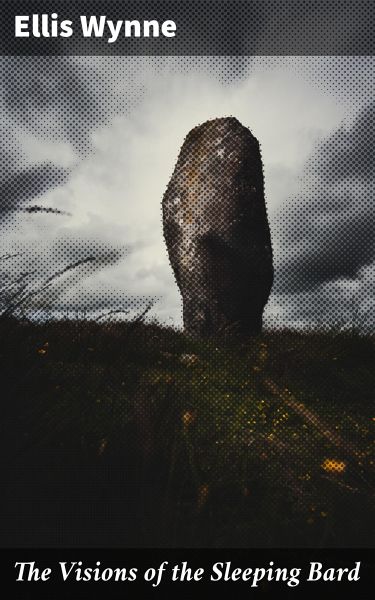
The Visions of the Sleeping Bard (eBook, ePUB)
Dreamlike Visions and Welsh Identity in Classic Literature
Übersetzer: Davies, Robert Gwyneddon
Versandkostenfrei!
Sofort per Download lieferbar
0,49 €
inkl. MwSt.
Weitere Ausgaben:

PAYBACK Punkte
0 °P sammeln!
In "The Visions of the Sleeping Bard," Ellis Wynne employs a visionary narrative style interwoven with allegory and rich symbolism, reflecting the religious and philosophical landscape of early 18th-century Wales. This prose poem presents a dreamlike journey through the afterlife, drawing inspiration from classical mythology and Christian theology, while illustrating the moral ramifications of one's earthly existence. Wynne's work serves not only as a reflection of his culture but also as part of a broader tradition of visionary literature that speaks to the human condition and the quest for s...
In "The Visions of the Sleeping Bard," Ellis Wynne employs a visionary narrative style interwoven with allegory and rich symbolism, reflecting the religious and philosophical landscape of early 18th-century Wales. This prose poem presents a dreamlike journey through the afterlife, drawing inspiration from classical mythology and Christian theology, while illustrating the moral ramifications of one's earthly existence. Wynne's work serves not only as a reflection of his culture but also as part of a broader tradition of visionary literature that speaks to the human condition and the quest for spiritual transcendence. Ellis Wynne (1671-1749), a reverend and passionate advocate for the Welsh language and culture, was influenced by the sociopolitical climate of his time, during which a resurgence of spiritual and nationalist sentiments emerged. His deep engagement with the Welsh landscape and folklore informs the vivid imagery and themes of moral rectitude present in this work. Wynne's eloquence in articulating the spiritual dilemmas facing humanity stems from his intrinsic belief in the power of literature to convey profound truths. "The Visions of the Sleeping Bard" is a fascinating exploration for readers interested in the intersection of spirituality, language, and culture. Wynne's masterful melding of dream and reality invites contemporary audiences to reflect on their moral pathways, ensuring that this timeless work remains relevant for those seeking insight into their own spiritual journeys.
Dieser Download kann aus rechtlichen Gründen nur mit Rechnungsadresse in A, B, BG, CY, CZ, D, DK, EW, E, FIN, F, GR, H, IRL, I, LT, L, LR, M, NL, PL, P, R, S, SLO, SK ausgeliefert werden.











